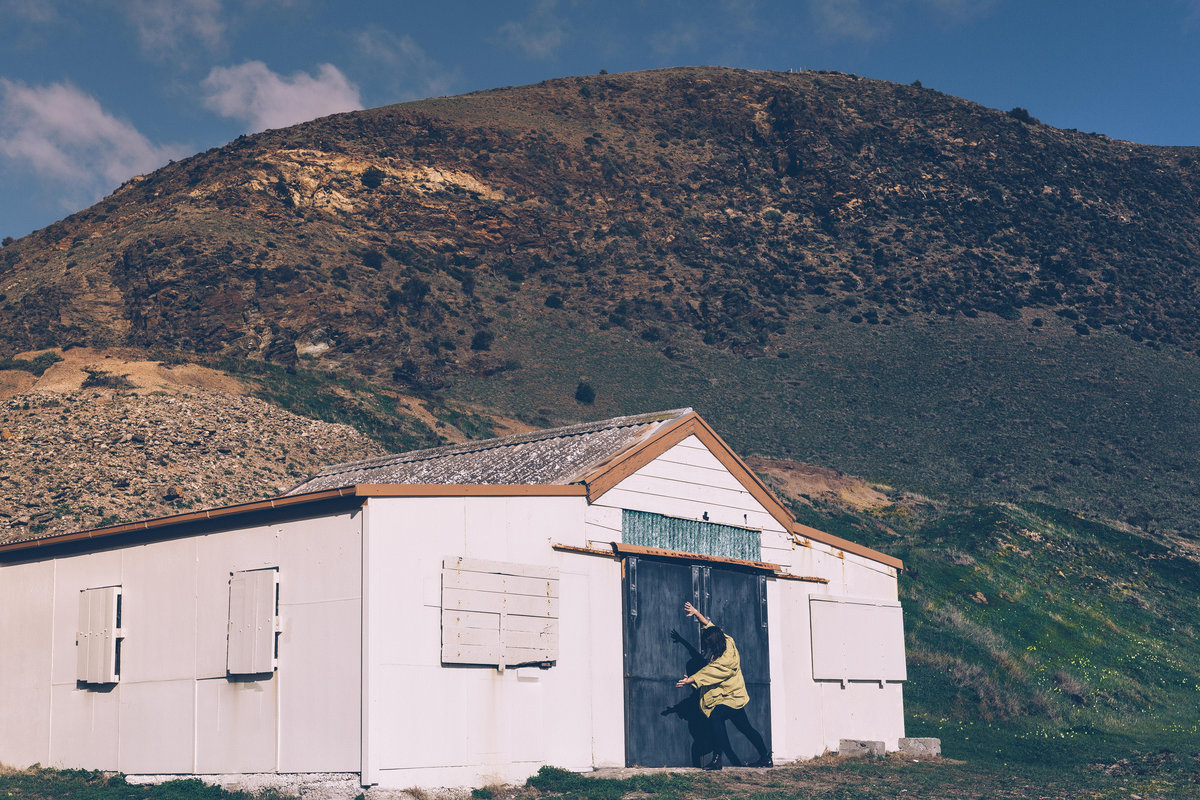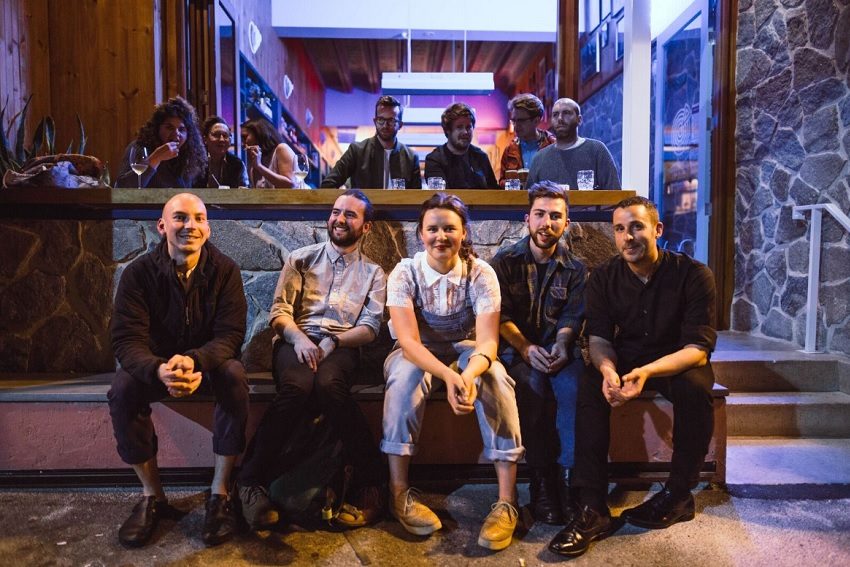Naomi Keyte is home among the gum trees with first solo album

Naomi Keyte is home, but certainly not alone. A few years ago Naomi Keyte returned to South Australia, another example of the rarely acknowledged footnote to our state’s “brain drain” reputation: the kids often do come back.
A stint in hyped but short-lived band Gold Bloom won praise, but it was her emergence as a seemingly fully formed soloist that stuck. An observer of urban and interior scenes set over intricately looped vocal and guitar performances, Keyte’s work struck an abiding chord with local audiences.
In the year leading up to her debut album Melaleuca however, came a realisation that saw her throw the template away, and, like Neil Young hooking up with Crazy Horse in ’69, recruit a hot band in local geometric post-rock trio Sparkspitter.
“Counter-intuitively, it was a decision to make more simple music,” she explains. “When I was writing with a loop pedal I was always thinking about how I could make it more interesting, so that it would feel like enough…I was so worried about it not being enough. Then I realised that was [actually] detracting from my ability to connect with people.”
With guitarist Sam Reynolds of now-dormant folk RnB trio Swimming also on board, what is on paper a surprising grouping works like a dream in execution, as Keyte’s Kate Bush via McKisko vocals float over a bobbing undercurrent of competing counter-rhythms and interwoven folk guitar noodling.
It wasn’t the only penny to drop. Like many restless young crow eaters, Keyte’s fondness for her homeland has grown as she has, and a tangible sense of place pervades the new work’s lyrics and arrangements, penned after another extended spell away from home. “I think I just took it for granted, it was what I knew,” she says of her earlier escape to Melbourne. “At that time, being in the big city felt more exciting, and it was an incredible opportunity musically.”
“[But] as I’m getting older my values have shifted, and nature suddenly becomes really important again. In your early twenties you go off and expand and then come back, and I guess growing up in the hills, that’s my natural habitat. So it’s a series of love song dedications to home.”
The album’s centrepiece Saltbush and Sand conjures imagery of Keyte’s family retreat on Cape Jervis, a site that has become a rare constant in her life. “It was built before I was born and I’ve been going there my whole life. My parents moved a lot when I was young, and I’ve moved a lot as you do in your early twenties, so that’s the one stable home I’ve got.”
“The thing about South Australia is we have this space and openness, and a dryness and saltiness to the air. The bush isn’t pretty and floral, it’s got a whole other character, so with the lyrics and even the band arrangements, it’s still quite held back. It’s not lush. It’s still a bit minimalist.”
Appropriately, Keyte and band retreated to another memory-rich family home to cut the record, this time the Port Lonsdale nest of reclusive producer Nick Huggins, the quiet enabler of many of Melbourne’s most interesting folk and pop acts like The Harpoons, Otouto, Whitley and Seagull. It’s hard to think of a more perfect fit.

“He’s pretty much a modern day monk,” Keyte explains. “He hates modern technology, he has a ‘dumb’ phone, he gets in the ocean every day without fail. And he has really strict working hours, from ten ‘til six, then he has the morning and evening with his family.
“He’s got this old shack that was his grandparent’s house. It’s like my family beach house, he’s had this connection to Port Lonsdale forever and he’s now living in it, and he’s got this shed crammed with instruments and analogue stuff. So we recorded in this tiny space and stayed in this old dinghy shack, the granny flat.”
“It was quite structured, and it meant we could live a balanced life while recording; we’d get up, and in the first few hours just rehearse, make notes and workshop together. At night we’d go for a walk and make a really nice dinner, drink some wine and work on parts and lyrics.”
It all sounds like a kind of home, and in a way so do the results.
Melaleuca is out February 5 via Bandcamp
Album launch: Sunday March 26, 2pm, Uraidla Institute
naomikeyte.com